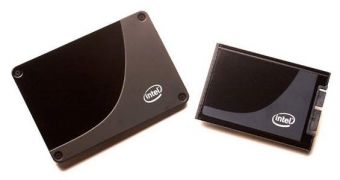Solid state drives are a rather bad choice for RAID setups, but the one reason that makes it so may not last much longer if Intel has anything to say about it.
Intel has a certain technology called RTS, short for Rapid Storage Technology.
Owners of its solid state drives may or may not have downloaded the new Rapid Storage Technology (RST) driver 11.5.0.1109 Alpha.
In the same manner, people may or may not have spent time reading through the release notes.
Those who did, though, may have noticed a particular line that says “this release will not enable the TRIM on RAID0 feature, but it will be added in the next RST 11.5 release. Contact your RST AE representative with questions.”
Basically, Intel is going to enable TRIM support for solid state drives set up in RAID0 configuration.
This is very big news for anyone using RAID, since it means their drives won't start losing performance over time anymore.
SSDs have an inherent problem in that they possess a limited number of write cycles and new data can't be overwritten on 'deleted' sectors without putting said sectors through erase cycles first.
Thus, as drives fill up with data and the number of those sectors rises, their read and write speeds decrease, and simply erasing files doesn't solve the problem.
Fortunately, Windows 7 has the TRIM command, which constantly clears up those deleted sectors (during idle times especially) and preserves the very high transfer speeds of NAND Flash drives.
This applies only to the units themselves, though, not to multi-drive RAID setups.
In other words, people may choose to combine two or more SSDs in RAID and benefit from higher performance and security, but only for a while, because that performance will visibly drop with time.
If Intel really does bring RAID TRIM support with the next RST driver, though, this final barrier will be surmounted and HDDs will lose yet another one of their advantages, like they are losing the affordability perk.

 14 DAY TRIAL //
14 DAY TRIAL //